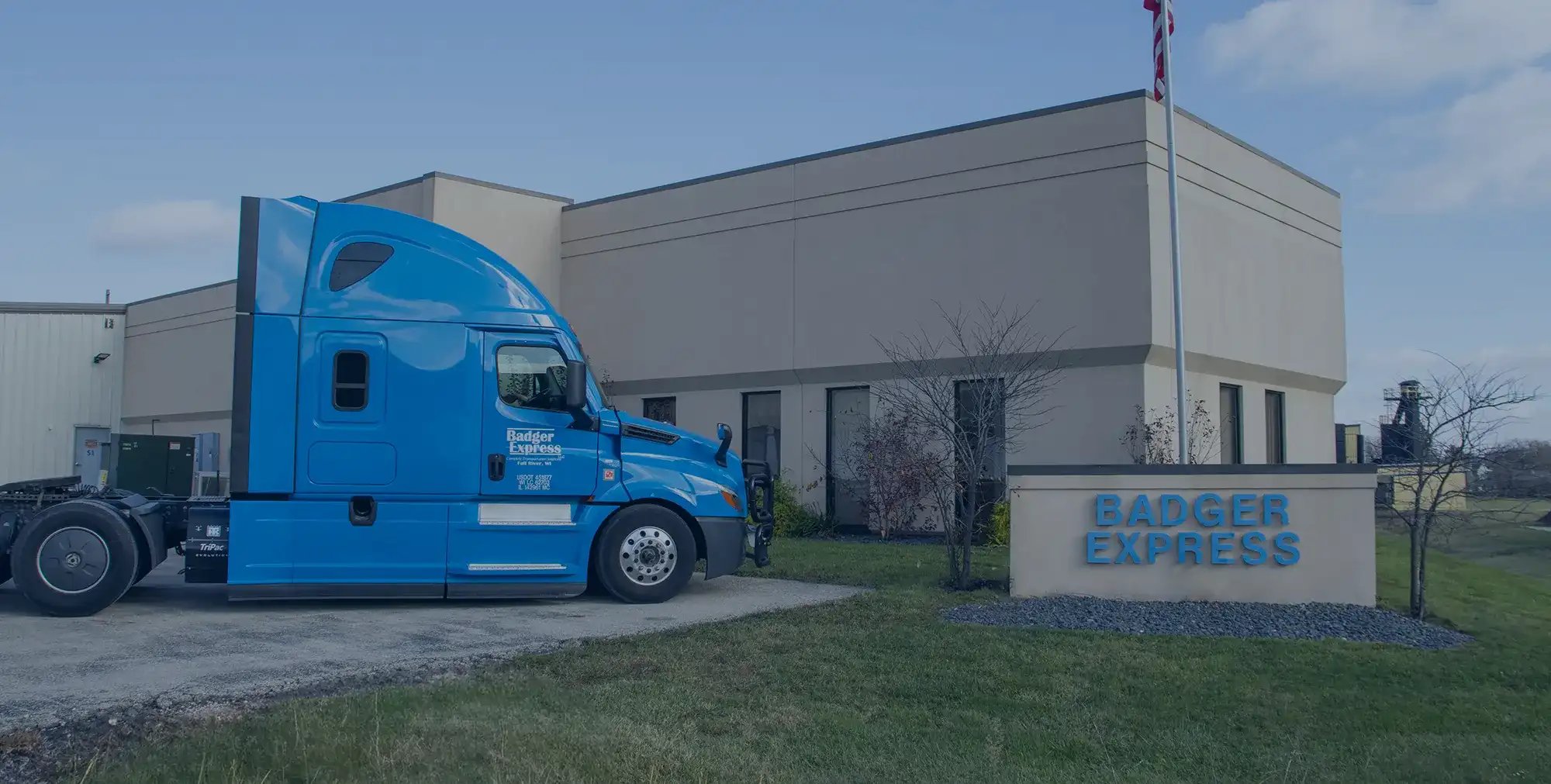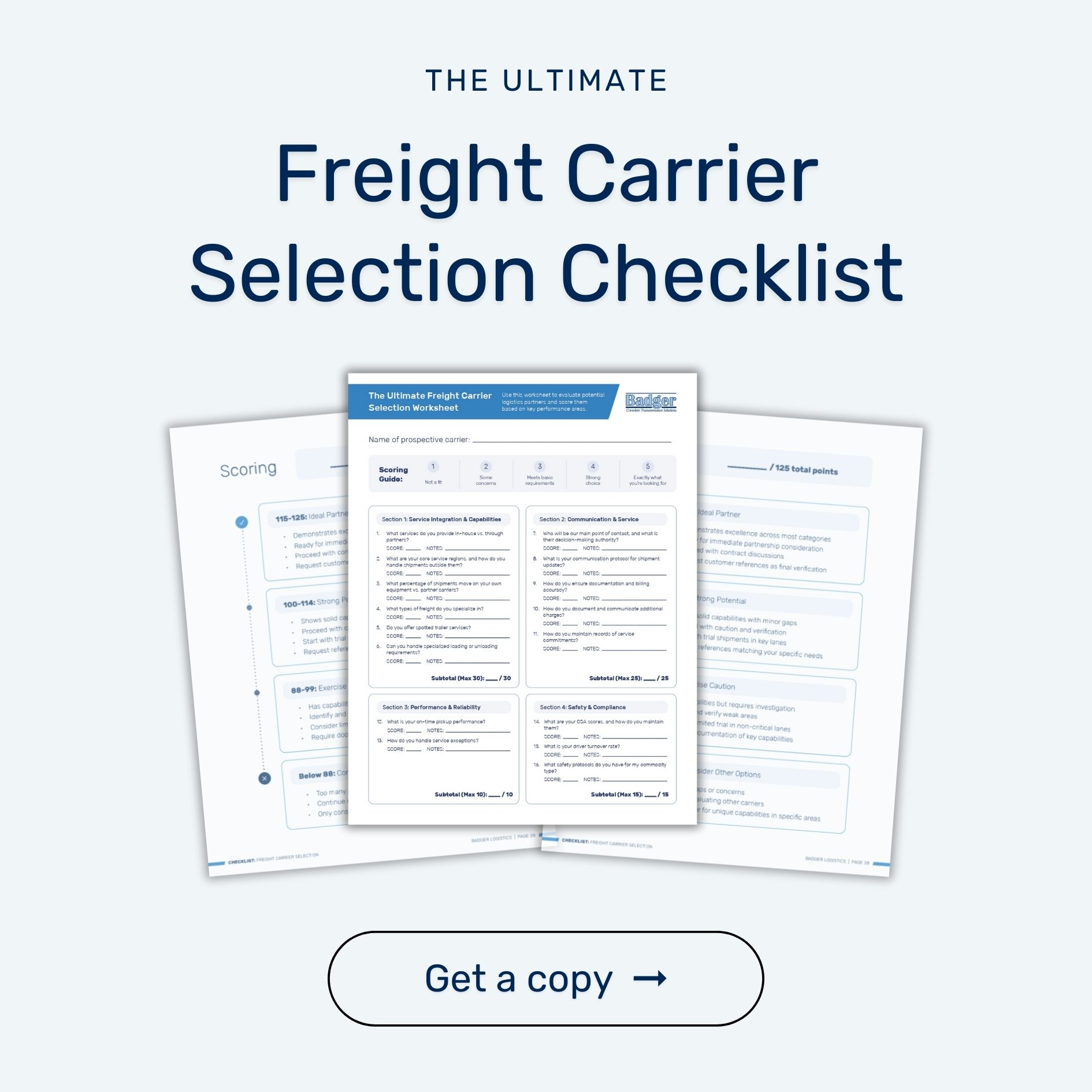When evaluating freight carriers, ensuring they have adequate insurance coverage is essential for protecting your shipments and limiting your liability.
Here's what to look for:
Liability insurance
At minimum, carriers should maintain $1 million in liability coverage. This protects against damage to property or injuries that might occur during transport.
For specialized or high-value shipments, you may want to seek carriers with higher coverage limits.
Cargo insurance
Standard cargo insurance typically covers $100,000 per shipment, which is sufficient for many general freight needs.
However, if your shipments exceed this value, verify that your carrier can provide additional coverage. Quality carriers like Badger Express maintain $250,000 in cargo coverage as their standard offering.
Workers' compensation
Ensure your carrier maintains proper workers' compensation coverage. This protects you from potential liability if a driver or dockworker is injured while handling your freight. Quality carriers will have an addendum to their contract specifically addressing this coverage.
General commercial liability
Beyond transportation-specific coverage, carriers should maintain general commercial liability insurance that covers their business operations as a whole.
Physical damage insurance
While this primarily protects the carrier's equipment, it's an indicator of their financial responsibility and ensures they can maintain operations following an accident.
Insurance verification process
Ask potential carriers about their insurance verification process. Reputable carriers should be willing to provide certificates of insurance and should regularly verify their coverage. For example, Fall River Express maintains digital records of all insurance documentation in their TMS system.
Additional considerations for specialized freight
|
Important factors for brokers
If using a freight broker, they should require all their carrier partners to maintain the coverages listed above. Quality brokers like Fall River Express hold contracts with carriers that bind them to insurance requirements and verify this coverage is current before assigning loads.
Finally, understand the difference between carriers' insurance and freight insurance that you might purchase separately. Carrier insurance covers their liability, while freight insurance typically provides broader coverage for your specific shipment. For high-value or critical shipments, you might want both.
Talk to us for a better logistics experience

At Badger Logistics, we combine asset-based trucking with extensive brokerage capabilities, warehousing, and maintenance services to provide integrated logistics solutions for shippers. This guide reflects not just my personal experience but the collective wisdom of our team, which brings over a century of combined Wisconsin logistics experience to every shipment we handle.
While freight transportation will always involve challenges, the right approach and partnerships can transform logistics from a constant struggle into a sustainable competitive advantage. I hope this guide helps you navigate Wisconsin's unique shipping environment more effectively.
For specific questions or to discuss your particular freight challenges or to get a competitive quote, feel free to reach out directly or submit the quote request form below. We'll be in touch within one business day.





